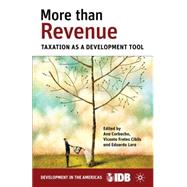More than Revenue Taxation as a Development Tool
, by Inter-American Development Bank; Inter-American Development Bank; Corbacho, Ana; Lora, Eduardo; Cibils, Vicente Fretes- ISBN: 9781137294838 | 1137294833
- Cover: Hardcover
- Copyright: 3/19/2013
Taxation in Latin America is largely viewed as a means of generating income to keep the government in business. In recent years, progress has been made towards increasing total revenue, but most countries in the region still lag well behind other countries with similar levels of development. More importantly, Latin American policymakers still largely ignore the potential of taxation to contribute to other important development goals. For instance, both the structure of taxes and the public spending they finance can have an important redistributive impact. But in Latin America, dependence on consumption taxes such as the VAT and the regressive bent of the personal income tax structure have squandered the opportunity to attack the region's serious income inequality. Similarly, the importance of efficiency in taxation has also been underestimated with a proliferation of inefficient ad hoc taxes such as those on bank transactions and exports. Governments have repeatedly missed the chance to influence consumption and production patterns (eg, nonrenewable resources) by using taxes to effect relative price changes. This book aims to provide an up-to-date overview of the current state of taxation in the Latin America and Caribbean (LAC) region, its main reform needs, and possible reform strategies that take into account the likely economic, institutional, and political constraints on the reform process.






